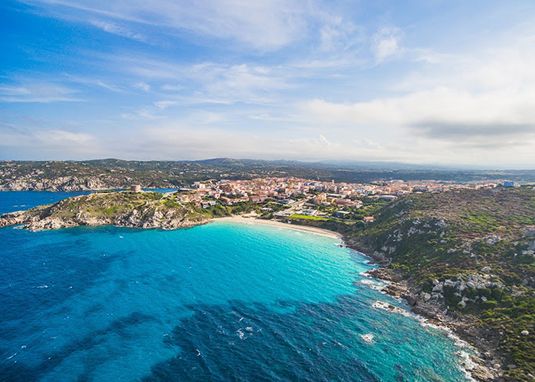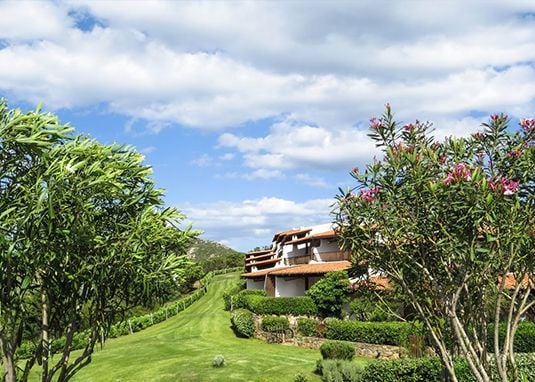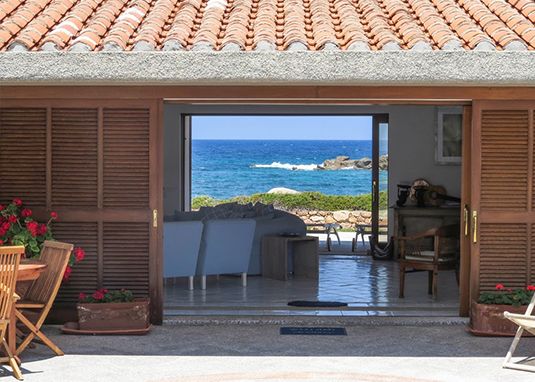
TROUVEZ VOTRE MAISON EN SARDAIGNE
How to buy in Italy
Home » Vente » How to buy in Italy
HOW TO BUY A PROPERTY IN ITALY
The buying process in Italy is simple, but there are some step you need to be careful. Immobilsarda-Christie’s will be your consultant during and after your purchase process.
SUMMARY
- Who can buy a property in Italy?
- The property purchase steps
- 2.1 Finance the purchase of a property in Italy
- 2.2 The appraisal of a property
- 2.3 The purchase proposal
- 2.4 The preliminary agreement - Il Compromesso
- 2.5 The final agreement at the notary and the duo diligence: the deed
- 2.6 The documentation needed at the notary
- 2.7 Tax and obligation to purchase a property in Italy: the deed and the municipal taxes
- 2.8 Your post-purchase with Immobilsarda
WHO CAN BUY A PROPERTY IN ITALY?
There are many foreigners who dream about buying a house or any other other form of real estate property in Italy, but first of all it is important for them to understand the laws that discipline the purchase of lands or properties issues in Italy. The current legislature provides the following conditions and distinctions for foreign nationals who wish to purchase a real estate property in Italy.
- Foreigners who do not reside in Italy can buy property here only if there is an international treaty that permits a material condition of reciprocity between their native country and Italy.
The Ministry of Foreign Affairs has established that reciprocity is not required in any of the following condition:- 1.1 If the foreigner is an European Union citizen;
- 1.2 If the foreigner is resident in Italy;
- 1.3 If there is an agreement between Italy and the foreigner’s native country that allows mutually requested activities including trades, businesses, companies and more.
- Foreigners residing legally in Italy, their families members and stateless persons who have lived in Italy for no less than 3 years are eligible to buy a property in Italy without the need for the verification of a condition of reciprocity if they have a residency permit.
- There is no particular requirement for EU citizens, EEA countries such as Iceland, Liechtenstein and Norway, stateless people and refugees who have lived in Italy for more than 3 years and are looking to buy a property in Italy.
THE PROPERTY PURCHASE STEPS
- A. Finance the purchase of a property in Italy
When we start together the search for your new house in Sardinia or in Italy, we need to know your demands, your budget and if you have already asked/got a loan (it could be advantageous during the negotiation with the seller).If you are willing to take out a mortgage on your property, we will be pleased to introduce you to our bank partner and to help you start this process. Immobilsarda-Christie’s is in strict contact with the Directors of some of the most important Istituti di Credito Nazionali able to apply for soft loans for our National and International clients at competitive market conditions.
This privileged relation between our Agency and Istituti di Credito Nazionali has created a direct channel to make these loans easier to obtain, also with advantageous interest rate for medium-long banking operations. Immobilsarda-Christie’s assures you the absolute priority during the elaboration, the processing, and the deliberation of your file as well as a our constant financial advice.
It is also possible to obtain a loan for just a part of the total amount even if you are not going to live in Italy. These kind of loans can cover up to the 80% of the LTV to be paid in tailor-made installment plans. - B. The appraisal of a property
In Italy the appraisal is not mandatory and the buyer is always the one who pays for it. If you wish an inspection, we will be pleased to send you a certified technician that will evaluate the property for you. If you plan to carry out construction or renovation works we offer our professional team of architects, interior designers, construction company and specialist that will help you during the after-sale works (see our Facility Management services).
- C. The purchase proposal
When you have found the property you were looking for, you have to sign a purchase proposal pointing out the price offered and depositing a sum (usually the 5-10% of the price offered) as a non-interest-bearing trust deposit as good faith. A purchase proposal binds only the buyer: the seller can always consider other offers.
The purchase proposal is permanent for a short time established by the buyer (usually from 10 to 15 days) . After this time, if the seller has not accepted the proposal, it is understood to be automatically expired and the guarantee deposit will be sent back to the buyer.
- D. The preliminary agreement - Compromesso
Note: The preliminary agreement is the first official act signed with the notary and the counterpart, but it is not mandatory; if both the seller and the buyer agree, it is possible to go directly to the Notarial Deed.
If the seller accepts the purchase proposal, the agreement becomes binding for both the parts. Once both have agreed about the price and the terms for the purchase, it is the time to sign the first preliminary agreement (or Compromesso) that can be written by the seller, by its legal, by the Notary or by the Real Estate agent..
- a. What is it?
The first preliminary agreement (or Compromesso) is the paper that obliges by the law the seller and the buyer to sell and buy the property. It is an effective contract that binds both the parts to draw the final agreement (the deed).
The first agreement can be stipulated:- 1. by a private writing drawn up between the parties, without the help of professionals
- 2. by a legal deed or by a notarially authenticated deed
- b. What is written inside the first agreement (Compromesso)?
In this paper, there must be written all the main point regarding the future sale: the selling price, the deposit, the method of payment, the completion date (if it is under construction), the agreement to buy and sell the property, the borders of the land and the cadastral data, the data of the final agreement sign.
During the signing of the Compromesso a payment is required for:
- 1. the 15-30% of the property selling price inclusive of the trust deposit as per point C, as a down payment.
This amount is paid directly to the Notary Public in a dedicated account, as the "supervisor" of the negotiation transaction for which he is the guarantor. - 2. our Agency fee equal to the 3% of the purchase price + IVA
- 1. the 15-30% of the property selling price inclusive of the trust deposit as per point C, as a down payment.
- c. The first agreement of a property under construction and bank guarantee
The italian law provides special laws that govern the cases when the first agreement is made for the purchase of a property not finished, to avoid the nullity of the contract which can only be invoked by the purchaser,to provide the purchaser with a bank guarantee (issued by a bank, by an insurance company or by an authorised financial intermediary) corresponding to the sums and value of any other amount equivalent that the manufacturer has collected and still has to collect from the buyer before the transfer of the ownership or any other beneficial right.
- d. What happens with the deposit in case of a non-fulfilment?
If the party who has paid the deposit (a sum of money which, in the event of fulfilment, will count as a down payment on the higher price due) is in default, the other party may withdraw from the preliminary by withholding the sum received as a deposit; on the contrary, if the party who has collected the deposit is in default, the other party may withdraw from the preliminary and demand the double payment of the deposit. In any case, the party may demand further compensation for damages, if can prove it.
- a. What is it?
- E. The final agreement at the notary and the due diligence: the deed
The Italian law establishes that the final agreement must be written by a Notary. The notary has the responsibility to arrange the due diligence and acts for both parties even if has been chosen by the seller. The notary will verify that before the sign of the final agreement that: 1) the house is free from mortgage 2) the taxes are paid 3) the house is owned by the person who sells it, and so on.
Now the final payment must be fulfilled and the deed signed or rogito (witnessed by the Notary). This requires a valid ID and the fiscal code (list of documents required in point 3). Then there is the money transfer to the seller, the payment of the Notary for his services and the purchase taxes. Payments are usually made by Circular Cheque (issued and guaranteed by your bank) or Bank Transfer directly to the Notary Public as guarantor, who will be required to transfer them to the Seller's bank account. If you do not speak Italian fluently, an authorized translator must translate the contract and must attend the signing of the final contract with the notary public.
The notary will give you a statement of the signed act and will hand a copy to the Cadastre and the tax office. For the official registration of the sale, the necessary government fees must be paid. The registration protects the property from third parties claiming other interests.
The complete notarial deed will be ready within a couple of months and in any case it will be the notary's responsibility to inform the purchasing part.
Although the registration and transcription of the deed of sale have a deadline of 30 days, the Notary guarantees the execution of these obligations within 10 days from the signing of the deed.
- F. The documentation necessary for the notarial Deed
To write the notary Deed many documents are necessary, but don’t worry: Immobilsarda-Christie’s will assist you till the day of the Deed.
To purchase a property in Italy we advise you to:- a. OPEN AN ITALIAN BANK ACCOUNT: Our financial consultant will help you to do so. If you prefer to arrange a fiduciary deposit to the notary, it will not be necessary to open a bank account.
- b. OWN AN ITALIAN FISCAL CODE: The Italian fiscal code can be asked to your Immobilsarda-Christie’s consultant and its accounting firms. Eventually, it can be requested at the Embassy/Consulate of the Country you live in.
The fiscal code will be also needed to complete all the after-sale paperworks, (Utilities header, light, water, …) - c. THE NEEDED DOCUMENT TO BE SUPPLIED TO THE NOTARY
- i. Natural person:
- Copy of ID and fiscal code;
- Copy of Registration certificate on plain paper;
- Copy of Act of marriage on plain paper;
- Copy of Civil status certificate on plain paper;
- Separation judgment if no divorce judgment has been given;
- Copy of valid residence permit / Green card.. - ii. Legal person:
- Updated Chamber of Commerce View;
- Copy of ID of legal representative and related power of signature;
- Recipient code or PEC for billing.
Price and payment for brokerage:
- photocopy of cheques of the paid price;
- photocopies of cheques paid for the mediation and data of the mediation company (name, registered office, VAT number, registration of the company's mediators, complete personal data, tax code and registration number of the legal representative's mediators register);
- complete registered preliminary of the Model F23.
General information to be communicated at pre-trial stage:
- request of first home benefits;
- tax credit;
- copy of the previous deed of purchase of property made with first home benefits;
- notarial declaration or copy of deed of sale;
- name of the Credit Institute for any loan application and relative contact person;
- disbursement at the time of purchase or sale.
Documents for individuals:- Chamber of Company Registration and Company Statute translated into Italian, Good Standing or Affidavit certificate, drawn up by a Notary and/or equivalent professional level including all the data of the company and the directors (with the relevant powers of signature) and shareholders, as well as, for the purposes of anti-money laundering legislation, the data of the beneficial owner, a natural person, who has a shareholding of more than 25% in the company (if there is no person who can be defined as the "beneficial owner" of the company, indicate the reasons for which the existence of the same is not configurable), all translated into Italian and duly sworn translation; the declaration relating to the "beneficial owner" may also be issued directly by the directors of the company;
- wealth regime (extract by summary of marriage certificate or certificate of free status)
Documents for legal persons:- Chamber of Company Registration and Company Statute translated into Italian, Good Standing or Affidavit certificate, drawn up by a Notary and/or equivalent professional level including all the data of the company and the directors (with the relevant powers of signature) and shareholders, as well as, for the purposes of anti-money laundering legislation, the data of the beneficial owner, a natural person, who has a shareholding of more than 25% in the company (if there is no person who can be defined as the "beneficial owner" of the company, indicate the reasons for which the existence of the same is not configurable), all translated into Italian and duly sworn translation; the declaration relating to the "beneficial owner" may also be issued directly by the directors of the company;
- power of attorney granted to the person acting in representation of the company, by public deed or authenticated by a Notary Public (if the public deed is not necessary), in the forms provided for by law, which must also include the verification of the full powers of signature of the person granting power of attorney, translated into Italian, apostilled and/or legalized.
- Italian fiscal code
- i. Natural person:
- G. Taxes and charges for the purchase of a property in Italy: at the time of the Rogito + fixed municipal taxes
As an approximate guideline it is necessary to calculate about 10% of the sale price of the property for the purchase costs in Italy.In the stipulation of Rogito Notarile the purchase costs are as follows:
1. ERARIAL TAXES: VAT/registration tax, mortgage tax and cadastral tax
2. AGENCY COMMISSIONS Immobilsarda-Christie's
3. NOTARY EXPENSESnbsp;More precisely:
1. ERARIAL TAXES: VAT / Registration tax, mortgage tax and cadastral tax
These are the 3 main taxes to pay when you buy a property, in addition to other minor taxes.
The cadastral value declared in the deed represents the taxable base on which these three taxes are applied and which may currently be lower than the market value of the property. But the "cadastral value" rule is not applicable to all purchases and sales; for example, if the buyer purchases not as a "private person", but as a "company", the tax base will be the commercial price of the property.
The amount of these three fees payable varies depending on the type of property and the "characteristics" of the buyer and seller:- 1.a. Sales subject to registration tax (i.e. those in which the selling part is: an individual; or a company that has not built or renovated the property; or a company that has built or renovated the property for more than 5 years and is not exercising the VAT option):
- (i) Registration duty
- first house: 2% (always to be calculated on the cadastral value);
- second house: 9% (to be calculated on the cadastral value if a private individual buys or to be calculated on the price declared in place if it is a company or a natural person who buys as owner of a sole proprietorship or as a professional); - (ii) Fixed mortgage tax: EUR 50;
- (iii) Fixed cadastral tax: EUR 50;
- (i) Registration duty
- 1.b. Sales subject to VAT (i.e. those in which the selling part is: the company that has built or renovated the property for less than 5 years; or the company that has built or renovated the property for more than 5 years and is exercising the VAT option):
- (i) VAT:
- first house: 4% (always to be calculated on the declared price in place);
- second house: 10% (always to be calculated on the declared price in place);
- luxury building: 22% (to be calculated on the current declared price); - (ii) Fixed registration tax: EUR 200;
- (iii) Fixed mortgage tax: EUR 200;
- (iv) Fixed cadastral tax: EUR 200
- (i) VAT:
*****
2. AGENCY COMMISSIONS Immobilsarda-Christie's
Agency commissions are equal to 3% of the sale price + VAT as required by law (in 2020 equal to 22%), to be due at the time of the Preliminary purchase or, in the absence thereof, at the time of the Notarial Deed.
*****
3. NOTARY EXPENSES
- NOTARIAL DEED CHARGES: Notary's fee, Cadastral Surveys, Deposit Price, Documentary Translation, VAT
In case of simultaneous conclusion of a land, building, mortgage loan:- MORTGAGE DEED EXPENSES: Notary's fee, doc. necessary, Deed Translation (if necessary), VAT
This summary scheme is valid as a general rule, but before buying a property you should check with the Notary the exact amount of taxes to be paid.
*****
Municipal fixed taxes:
- IMU: property ownership taxbr /> - TARI: tax on waste collection
- TASI: which are local taxes on services for services such as street lighting etc.* Only first-home owners are exempted from Imu and Tasi for properties that are not classified as luxury homes. However, they will have to pay the TARI according to the square meters of the house.
* On the contrary, if you buy a second home, you will have to pay Imu, as well as Tasi and Tari.
* In any case, we recommend you to carefully check the exact amount of taxes you have to pay for your property in Italy, as the situation may change from city to city and depending on political events.H. Facility Management and after-purchase with Immobilsarda-Christie's
The Facility Management Service of Immobilsarda proposes itself as the sole interlocutor, taking responsibility for maintaining and improving every aspect of the integrated services of the property.
Any urban planning issues, the definition of taxes due, the income with seasonal rent will be our prerogative, relieving the customer from all organizational and management costs and ensuring the rapid resolution of all issues related to maintenance and more generally to everything concerning economic efficiency and performance of each property.
Immobilsarda also offers:- Assistance and bureaucratic paperwork in all phases of the purchase and sale process, up to the deed of sale;
- Drafting of preliminary sale and purchase contracts, lease agreements;
- Legal, notarial and tax advice;
- Credit assistance, also to foreign customers, for the request of medium-long term loans (mortgages);
- Assistance in searching building practices and cadastral documents;
- Verification of building practices and cadastral documents;
- Due diligence assistance;
- Assistance to foreign customers in applying for and issuing tax identification numbers.
Our Property Finders consultants will be at your disposal throughout the entire purchase process. Once you have purchased your home we will be happy to assist you in the post-purchase process if you wish to renovate or modify your property. We will put at your disposal professionals in the field (surveyors, construction company, architects, interior designers) and we also offer project management services during the renovation, as well as the full management of the property and the possible income generation.
- 1.a. Sales subject to registration tax (i.e. those in which the selling part is: an individual; or a company that has not built or renovated the property; or a company that has built or renovated the property for more than 5 years and is not exercising the VAT option):








